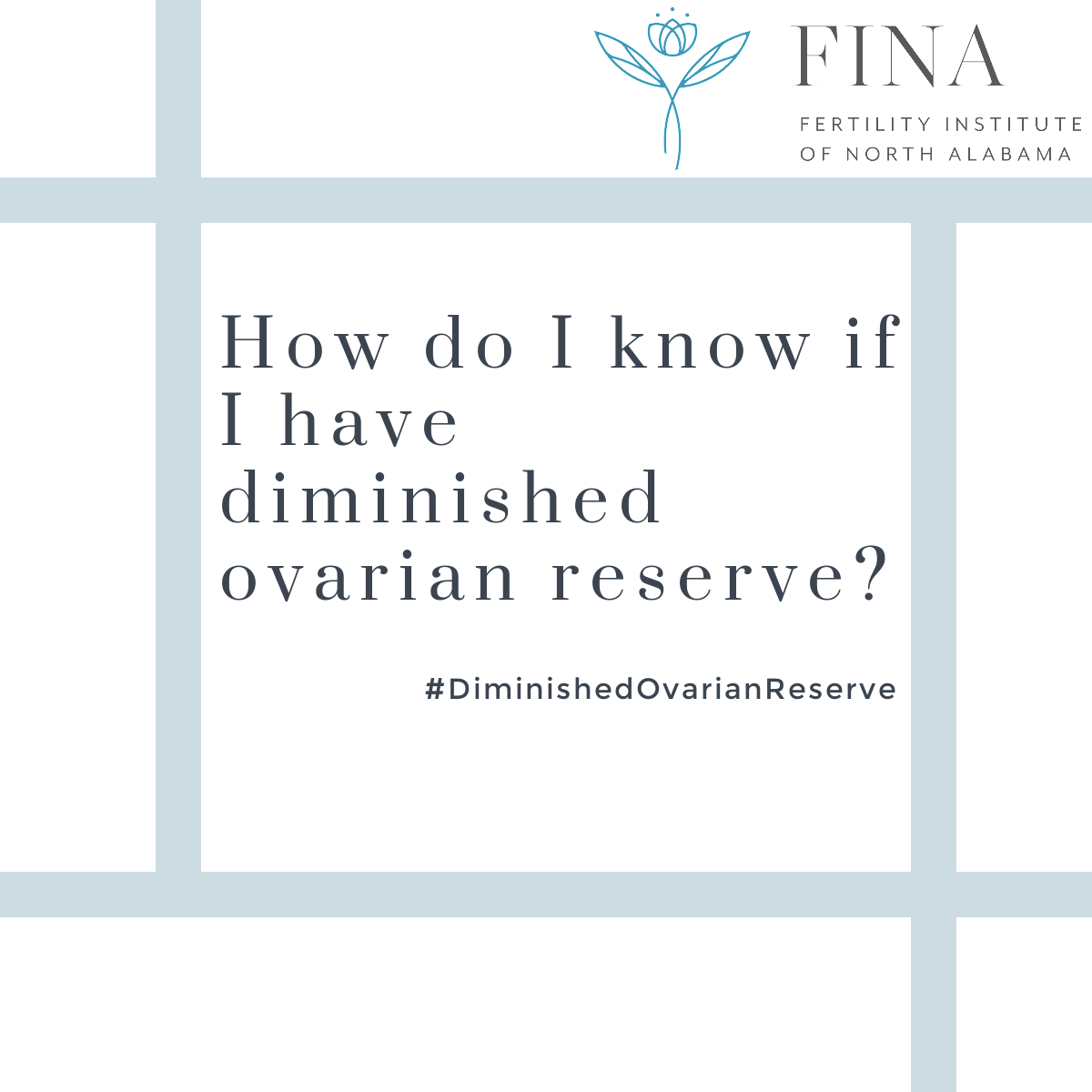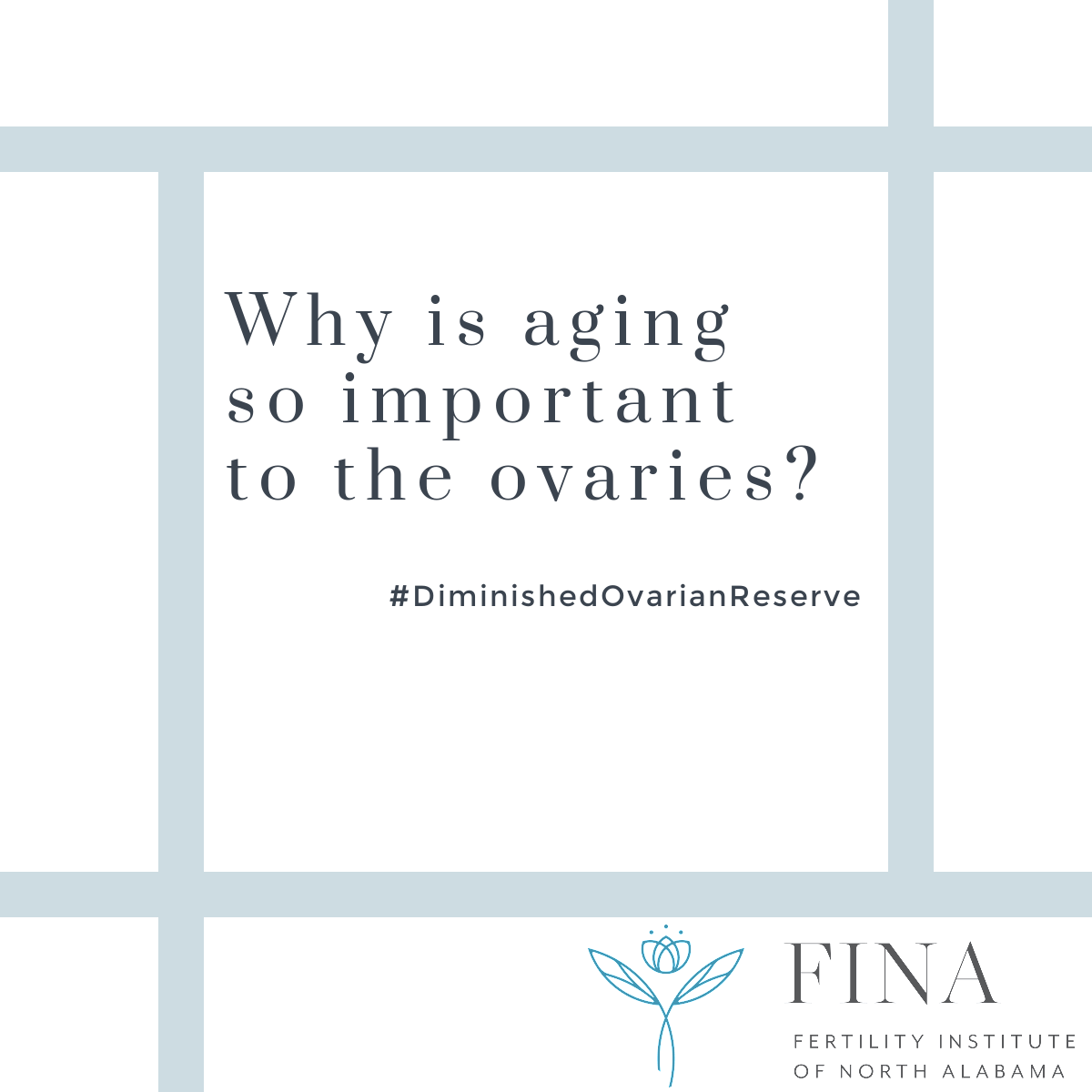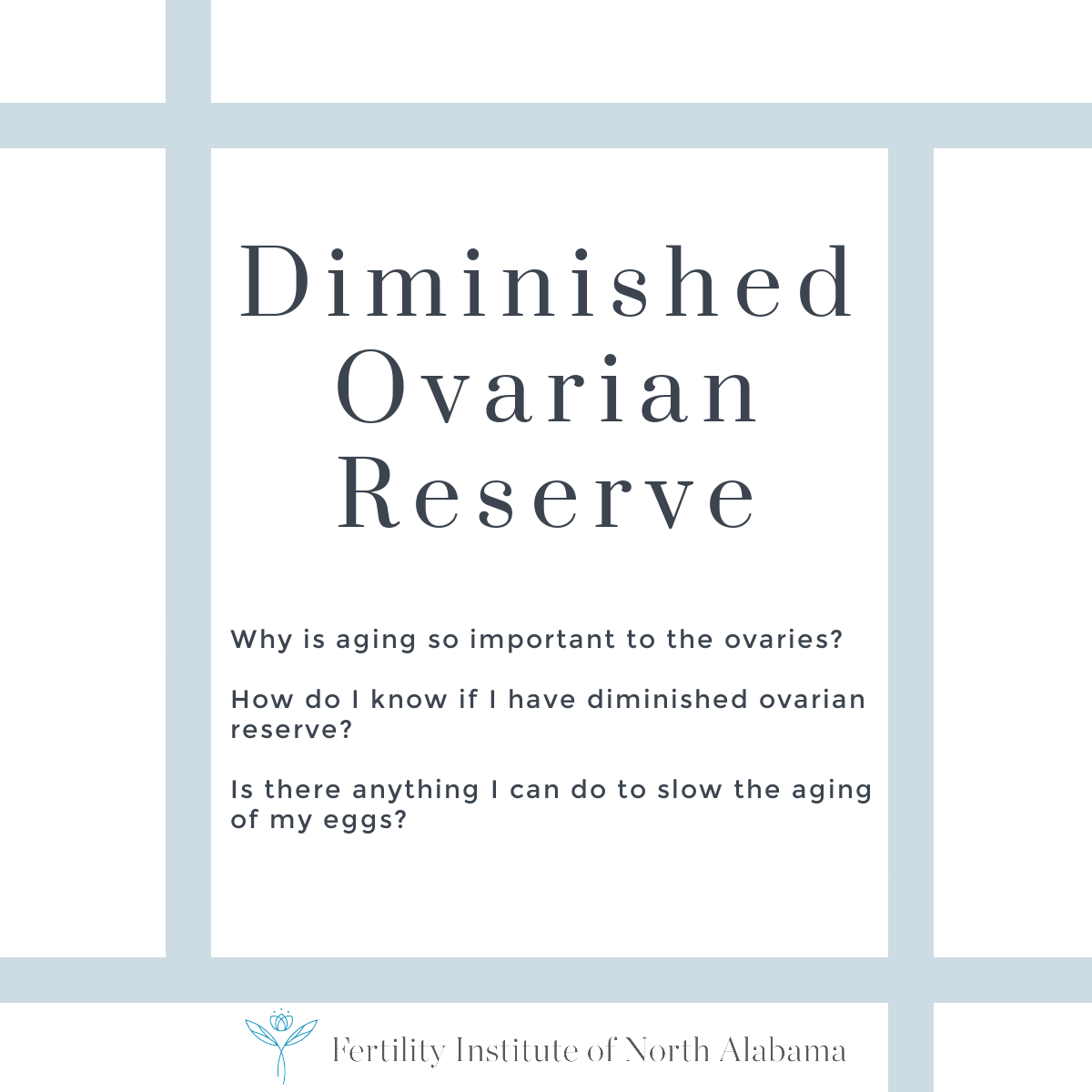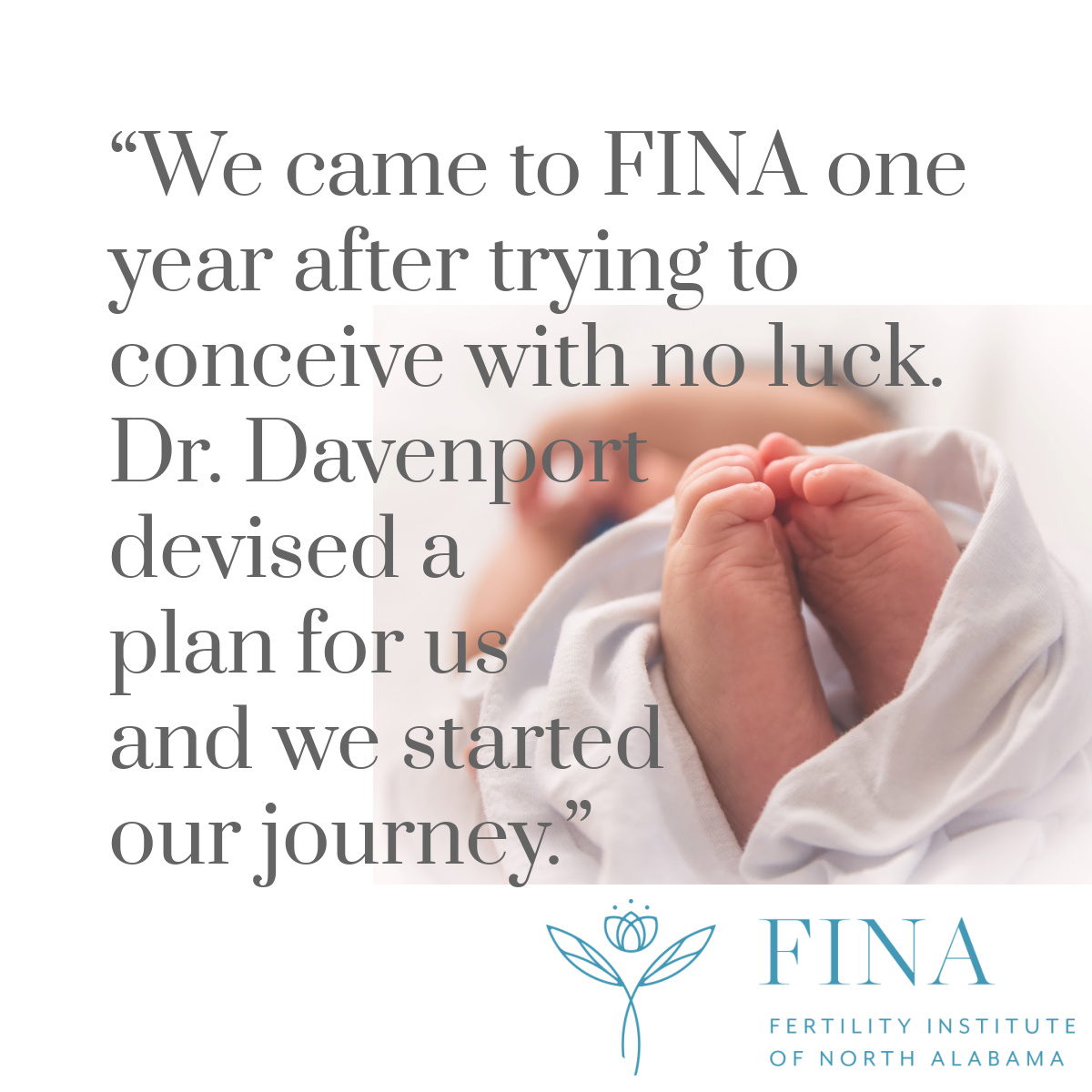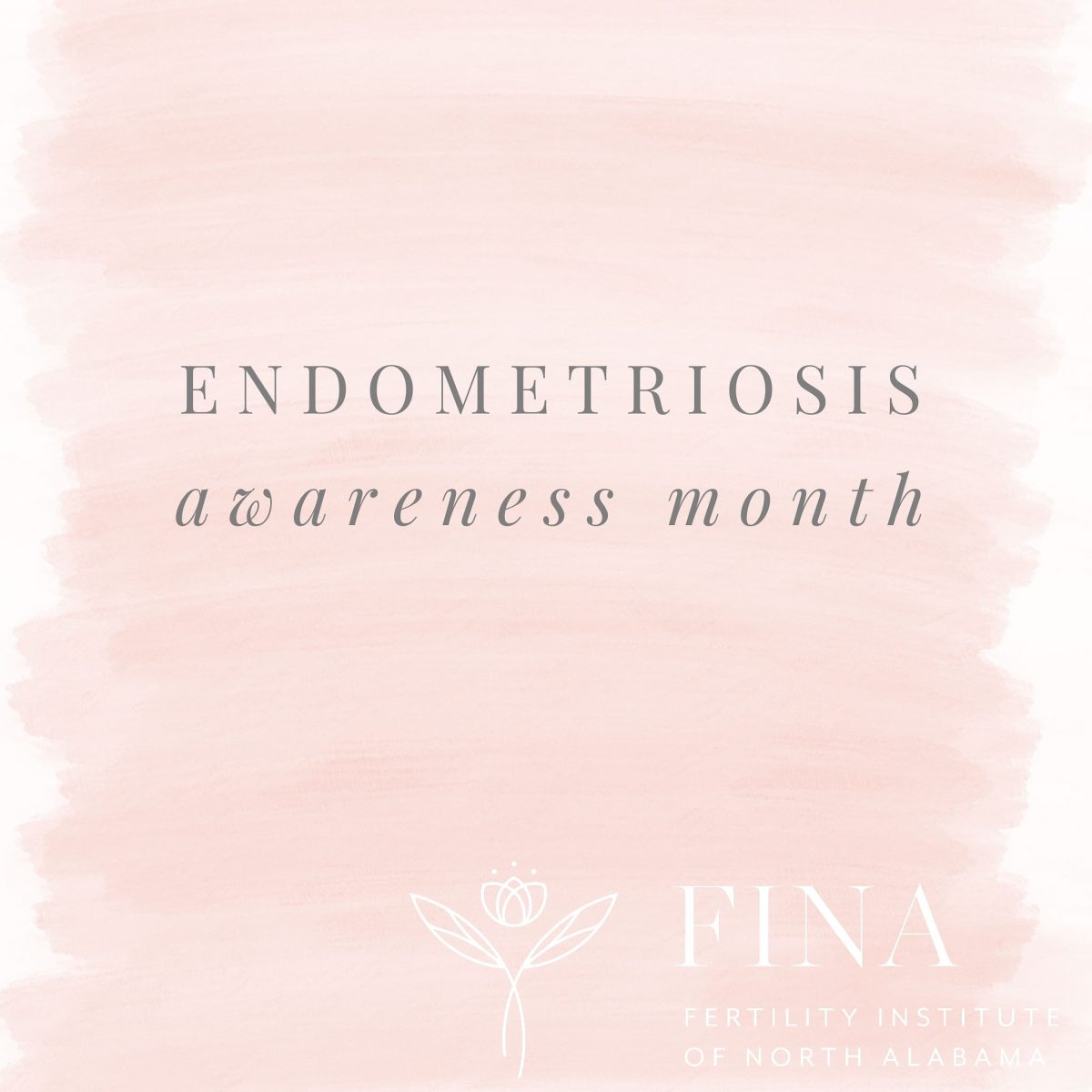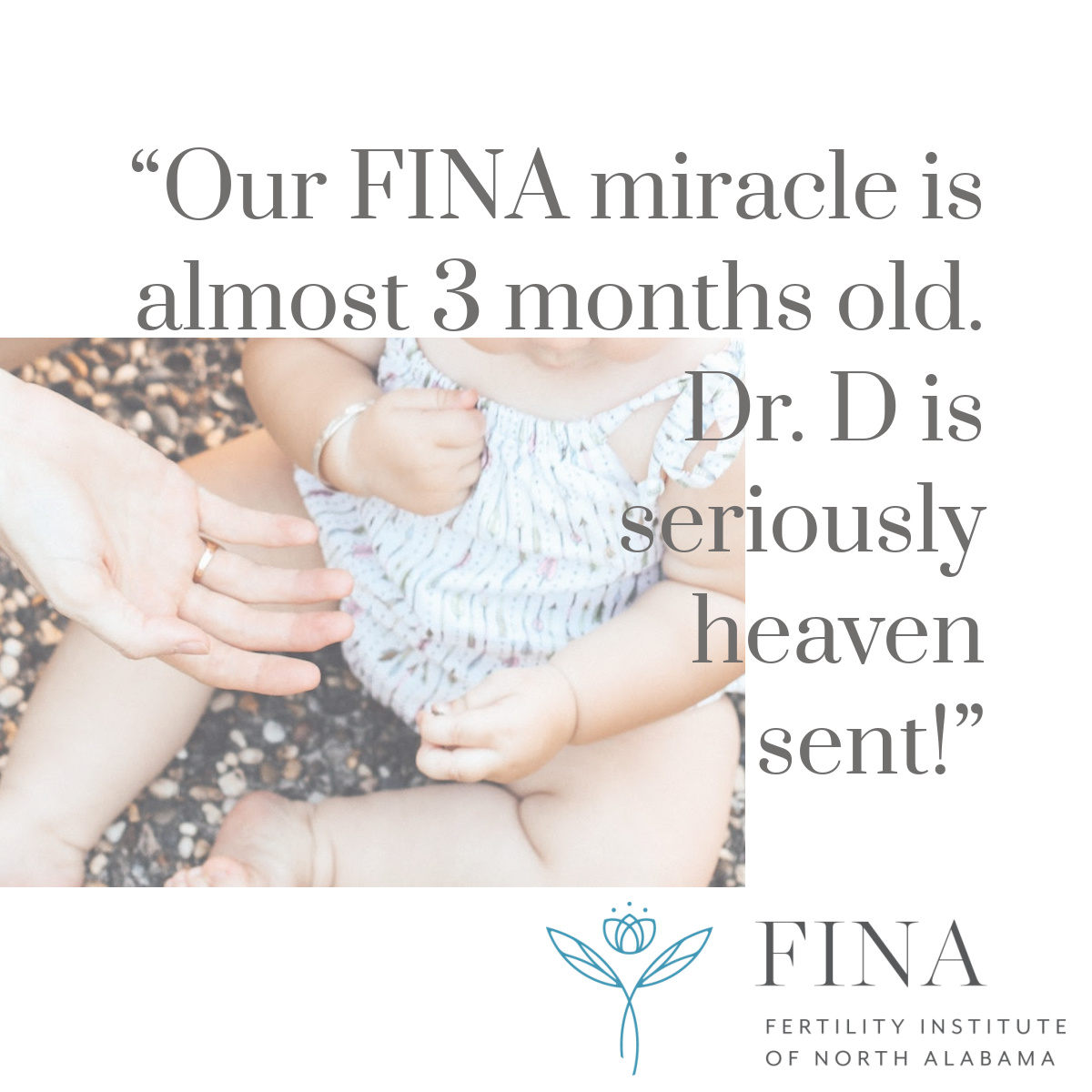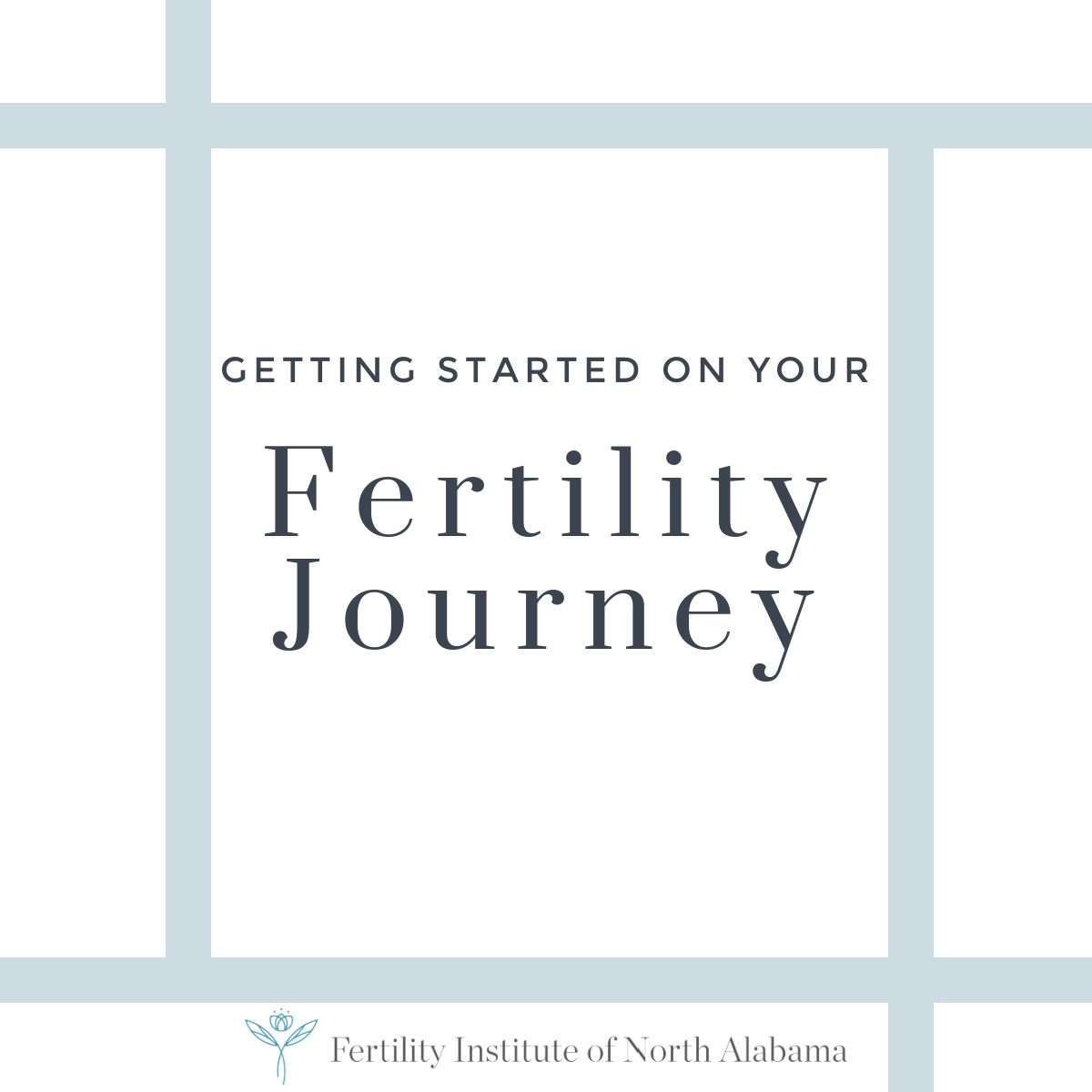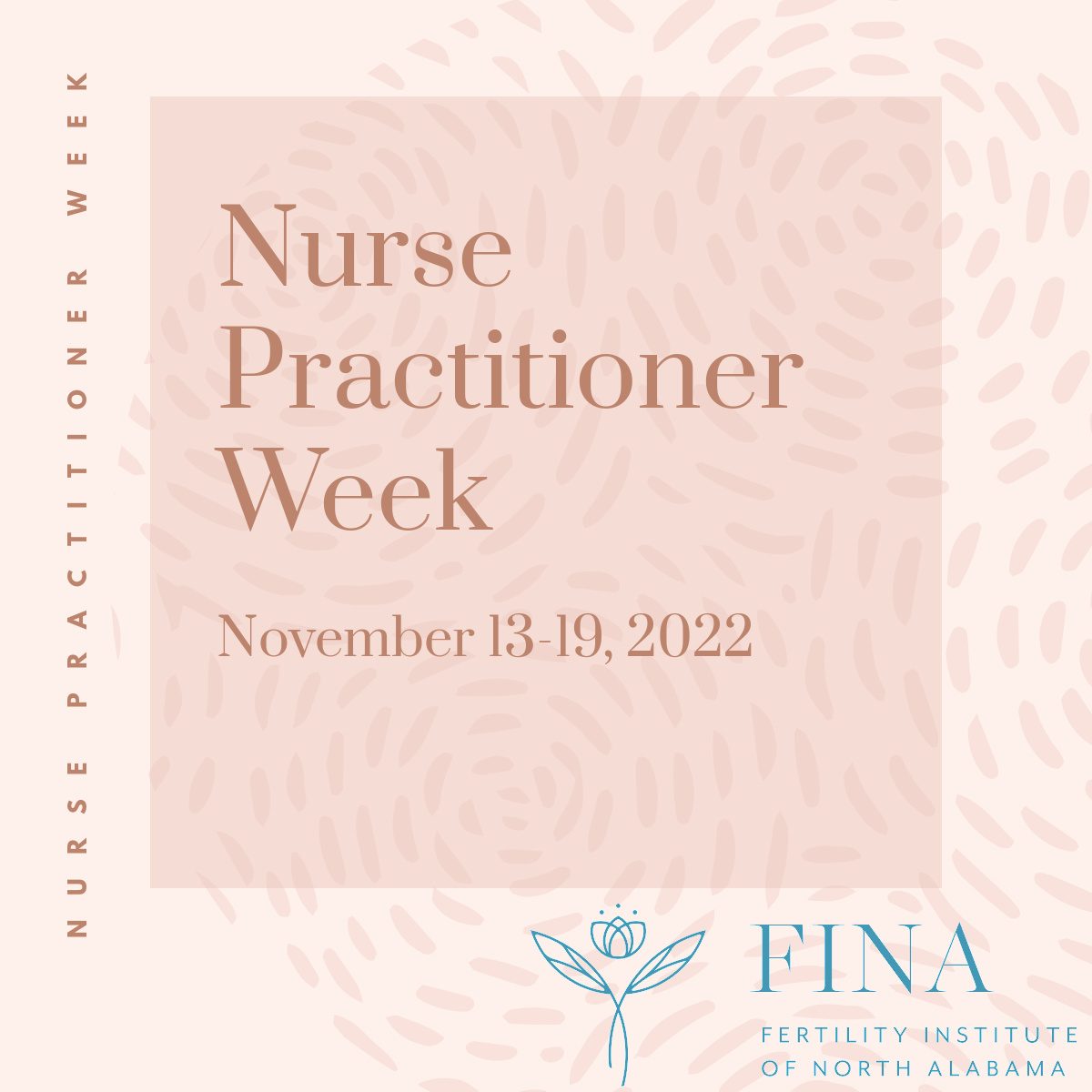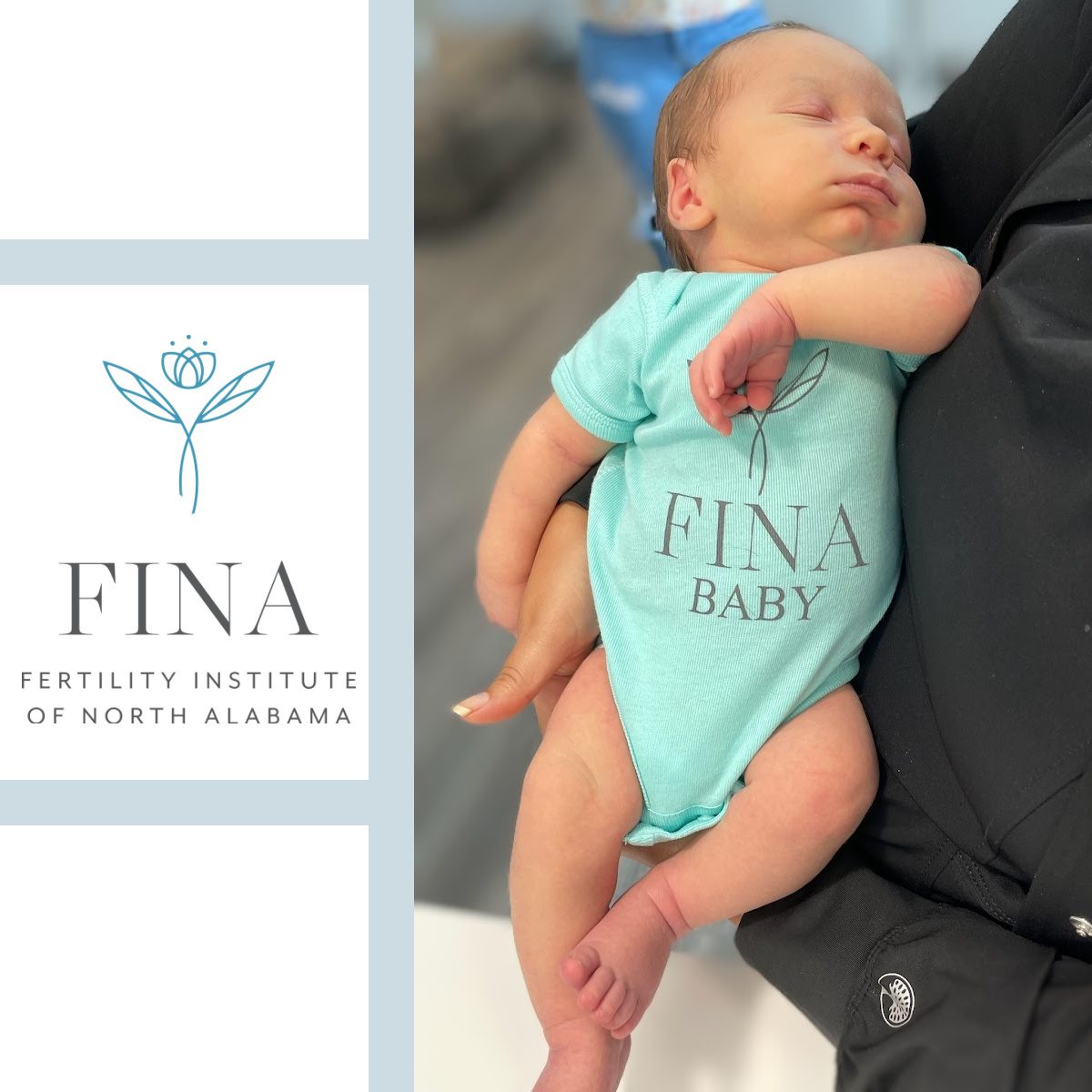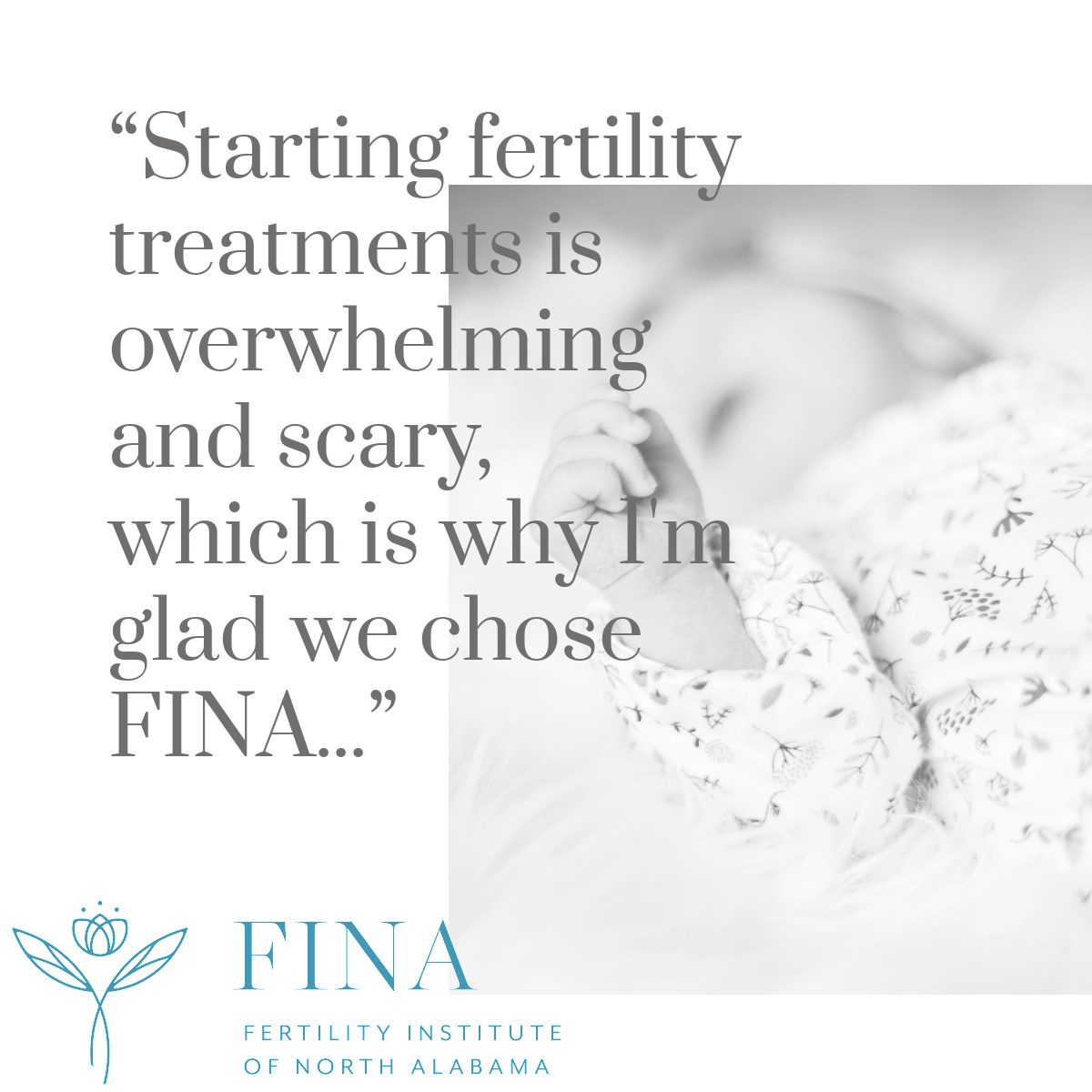Category: reproductive doctor
Why is aging so important to the ovaries?
Diminished Ovarian Reserve
One patient’s FINA story 💕
Endometriosis Awareness
A patient’s FINA story…
Getting Started on your Fertility Journey
If you’ve been thinking about taking that first step, we encourage you to go ahead and reach out! You can either call us at 256-217-9613 or visit our website to set up your first consultation.
A couple’s first visit will consist of a consultation with Dr. Davenport. It is at this time that Dr. Davenport will gain a full understanding of your history, and you and Dr. Davenport will decide upon the best treatment plan for you. We encourage both spouses to be present at this visit, although we understand that this is not always possible.
At FINA, we will submit the charges for office visits, labs, ultrasounds, and procedures to your insurance company. Our staff will confirm what services are covered by your insurance, but we encourage all of our patients to verify their coverage as well.
If you do not have insurance or prefer that we do not file your fertility treatment with your insurance company, we offer cash pay packages for your visits. For those services that are not covered by insurance, we try to make them as affordable to you as possible. In these cases, we bundle services together in order to discount the overall cost to you.
Our fertility clinic is designed to personally assist you through this journey. Though you may feel anxious, we are here to walk this journey with you. ❤️
#FINA #HelpingFamiliesBuildFamilies
